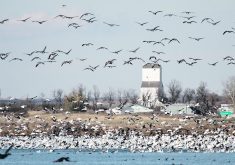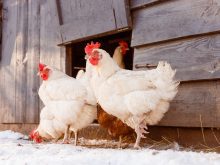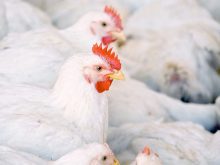The Bloomberg School for Public Health at Johns Hopkins University noted that some health officials have concerns about bird flu.
During the school’s Public Health on Call podcast from Jan. 14, Andy Pekosz, a professor of molecular microbiology and immunology, noted that while hospitals are stepping up their testing for influenza at this time of year, a person with a seasonal flu as well as H5N1 could result in the viruses exchanging genetic material. That might make humans more susceptible to bird flu, of which cases are still rare.
The U.S. Centers for Disease Control and Prevention said 67 Americans have contracted the H5N1 strain of avian influenza, with California leading with most cases at 38.
Read Also

Russian wheat exports start to pick up the pace
Russia has had a slow start for its 2025-26 wheat export program, but the pace is starting to pick up and that is a bearish factor for prices.
The CDC said 40 cases were from contact with dairy herds, 23 with poultry operations and one case was due to another animal exposure. In three cases, the cause of the exposure was unknown.
So far, only one person in the United States, from Louisiana, has died from bird flu.
In the meantime, the U.S. Department of Agriculture announced on Jan. 14 that it’s taking measures to rebuild its stockpile of bird flu vaccines. The USDA said it will match the stockpile to the H5N1 strain.
Also, the USDA previously announced that 28 states are participating in the National Milk Testing Strategy. These states represent almost two-thirds of the country’s milk production.
In Canada, the Canadian Food Inspection Agency ordered Universal Ostrich in British Columbia to cull its entire herd of 400 ostriches after the presence of bird flu had been confirmed.
The CFIA issued the order Dec. 31, giving the farm until Feb. 1 to complete the task.
The agency noted it follows the classification of poultry set by the World Organization for Animal Health, which includes ostriches.
















